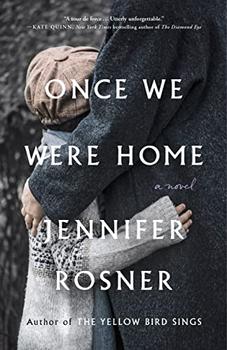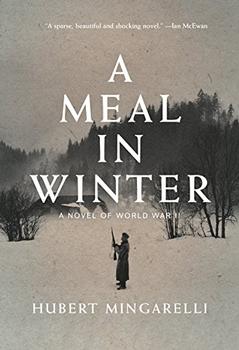Summary | Excerpt | Reading Guide | Reviews | Beyond the book | Read-Alikes | Genres & Themes | Author Bio

Evokes wartime lives and places with astonishing immediacy and in an utterly unforgettable way, from the point of view of a young Jewish girl and a boy who struggles with his place in the Hitler Youth.
In the spring of 1939, on the eve of her thirteenth birthday, a girl sits in a waiting room in Marseilles. Ilse is half Jewish; her mother has sent her out of Germany to a place she hopes will afford her daughter absolute safety. But instead, Ilse’s journey takes her deep into the landscape of war: first to Morocco, then to Paris under the threat of Nazi invasion. Traveling across borders, blown by circumstances beyond her control, Ilse must use her wits to survive an enemy occupation, one that steals away her name and sense of self, making even her own language taboo.
At the same time, in Germany, a boy struggles with his place in the Hitler Youth. Despite the comforts of his Hamburg home, Nicolai comes to feel that he is a stranger in his own land. As his mother takes up with another man, Nicolai finds emotional refuge in a growing attachment to his beautiful new nursemaid, a woman of silences and sorrows. Gradually, he draws out her secret: she has a child whom she fears may be lost to her forever. That child is Ilse.
The Children’s War evokes wartime lives and places with astonishing immediacy: the labyrinthine bazaars of Meknès; Hamburg’s cellars packed with civilians during air raids; the salt tang of Marseilles, where prostitutes and gangsters live side by side with freedom fighters and refugees. We meet "Swing Boys" sneaking tobacco and home-distilled liquor in illicit jazz cafés, and young soldiers stirring pea soup beside tents on the sandy Baltic coast.
Meticulously researched, yet also a vivid work of imagination, The Children’s War recreates the landscape of World War II in a new and utterly unforgettable way. Interweaving the stories of Ilse and of Nicolai, it is a gripping tale of adventure, loyalty, love and betrayal; of disappointment and hope; of parents and children trying to protect one another; of self-discovery. It is a stunning novel.
I found The Children's War to be a very compelling read; Charlesworth really gets inside the heads of her characters, who have to grow up so quickly, and through them she conveys both the terror of war and the unvarnished banality of day to day survival. The book covers a lot of ground - from the bombings of Hamburg (at the time the heaviest assault in the history of aerial warfare) to the students of the military academy at Saumur in France who, having been taught to uphold the highest codes of honor, held a bridge against the German advance for a full day, while the people of their town stoned them from behind, so that they would surrender faster and spare the town...continued
Full Review
(338 words)
This review is available to non-members for a limited time. For full access,
become a member today.
(Reviewed by BookBrowse Review Team).
Monique Charlesworth was born in Birkenhead, England, and has lived in France and Germany. She began writing fiction while living in Hong Kong and is the author of three previous novels: The Glass House (1986), Life Class (1988) and Foreign Exchange (1995), all of which appear to be out of print.. She has worked as a journalist and as a screenwriter for both film and television. She lives with her husband and two children in London.

If you liked The Children's War, try these:

by Jennifer Rosner
Published 2024
From Jennifer Rosner, National Jewish Book Award Finalist and author of The Yellow Bird Sings, comes a novel based on the true stories of children stolen in the wake of World War II.

by Hubert Mingarelli
Published 2018
A miniature masterpiece, this is the spare, stunning story of three soldiers who share a meal with their Jewish prisoner and face a chilling choice.
The library is the temple of learning, and learning has liberated more people than all the wars in history
Click Here to find out who said this, as well as discovering other famous literary quotes!